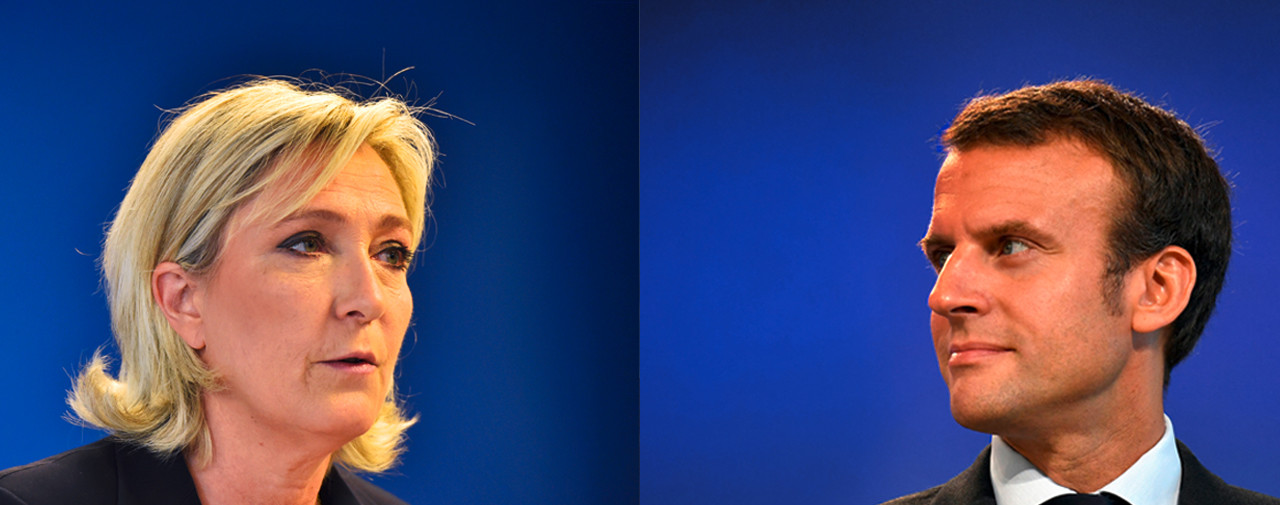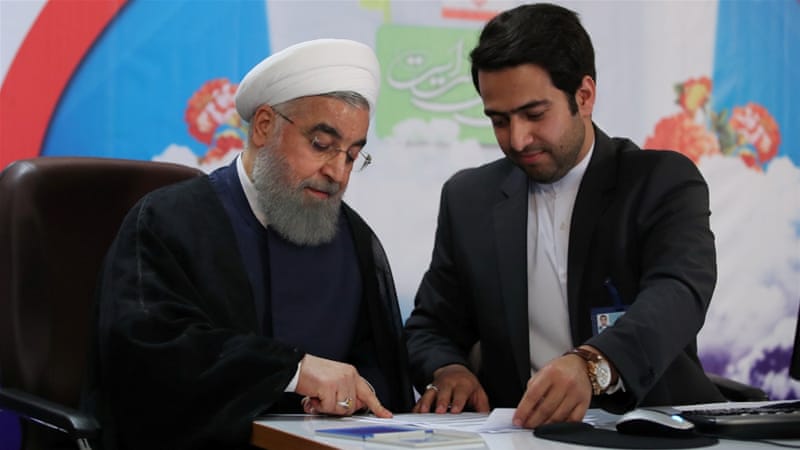By Hani Barghouthi
On May 7, French voters will go to the polls for the second round of the presidential elections that have been described as “a remarkable turning point for France” and “Europe’s most important and exciting poll this year”. This is because, for the first time in French history, neither of the two main political parties in France – the socialists on the left and the republicans on the right – have made it to the second round. Instead, it’s far-right populist candidate Marine Le Pen, versus centrist, “globalist” Emmanuel Macron.
For a breakdown of the basics on both candidates and their platforms, this article from the Washington Post is an excellent place to start. It helps explain what these elections will mean for France, the EU, and the rest of the world.
Macron is leading in the polls, with around 60%, but Le Pen might still be able to win the second round despite Macron’s early victory, according to this article on Forbes. Although most politicians and celebrities in France have endorsed Macron and called on voters to vote for him on election day to ensure that Le Pen doesn’t win, many young French voters have decided that their best choice is not to vote at all, as this Buzzfeed article explains.
In this opinion piece on The New York Times, Roger Cohen discusses what he believes Macron needs to do in order to secure his election, and this news article on The Independent draws parallels between the French and American elections by bringing alleged Russian hacking into the equation.
EU stability, immigration, and hacking, are themes strongly present in Germany’s upcoming federal elections too, which will be watched closely because of what Angela Merkel’s re-election for a fourth term could mean for Europe’s refugee Crisis.
Alternative for Germany (AfD), Germany’s far-right party, is losing popularity, according to the latest polls. This prompted Frauke Petry, Germany’s Le Pen, to announce that she won’t necessarily be the party’s candidate.
This informative article on Bloomberg discusses Merkel’s position within the elections considering her opponents, and infers that the populist ideology that contributed to getting Trump elected may be failing in Germany. This piece on the Express is an important read to understand the anti-EU stance forming in both Germany and France, and this article on Fortune speculates that, much like in the US and France, cyber hacking is possibly being employed in Germany to influence the results of the elections.
Iran will be holding presidential elections in May, and the six candidates were announced last week, with former president Mahmoud Ahmadinejad barred from running. This piece on The New Arab follows the general consensus that these elections are a showdown between moderates and hardliners, and discusses current president Hassan Rouhani’s campaign against his more conservative opponents. However, writer and analyst Saied Golkar offers a lot more more nuance regarding the logistics and ideologies behind each candidate’s campaign in this article on AlJazeera, and astutely breaks down what he deems the three main blocs in Iranian politics to be since 1979.
Perhaps the election that will have the most direct effect on the future of the EU is Britain’s. Prime Minister Theresa May announced last week that she will be calling a snap election in June in an effort to harden the public and the government’s support for her decisions as PM, especially in relation to the procedures of Britain’s exit from the EU. This informative analysis on The Telegraph discusses the intricacies of the upcoming election as well as the dynamic between May’s party, the Conservatives, and their opposition in the Labour party, as well as how May might have given herself an impressive advantage by calling a surprise election when she constantly claimed she would not.
Confidence in Labour leader Jeremy Corbyn is at an all-time low, with attacks from both the right and the left. However, while the Conservatives seem to be confident that this election will grant May an increased majority, her opponents are using this as an opportunity to organise and try to get people to vote tactically in order to oust the Tories.
Finally, we couldn’t find a better piece to break the theme of elections than this fascinating feature on The Atlantic. It covers the inception, commencement, and collapse of Google’s extremely ambitious quest towards creating a “universal library” by scanning every book that exists and making it available online for people to search through. Out of about 129 million books they estimated to exist, Google managed to scan about 25 million before they started being sued.
“It was strange to me, the idea that somewhere at Google there is a database containing 25-million books and nobody is allowed to read them. […] It’s there. The books are there. People have been trying to build a library like this for ages—to do so, they’ve said, would be to erect one of the great humanitarian artifacts of all time—and here we’ve done the work to make it real and we were about to give it to the world and now, instead, it’s 50 or 60 petabytes on disk, and the only people who can see it are half a dozen engineers on the project who happen to have access because they’re the ones responsible for locking it up.”





